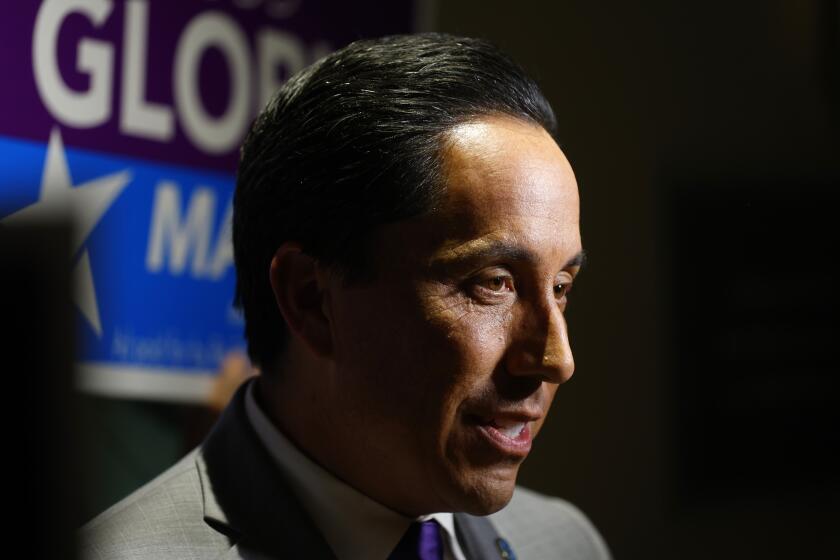MTS answers Congress on railroad
The Metropolitan Transit System has answered two members of Congress concerned about its decision to award a 99-year lease to a company that has since been accused of fraud by former executives.
The company, Pacific Imperial Railroad, is now late on a $500,000 payment to the agency.
In a four-page letter, MTS says the 2012 lease to launch and operate a 70-mile rail line from Campo to Plaster City in Imperial County was an improvement over the existing lease that it replaced, and benefited taxpayers.
The letter was addressed to Rep. Duncan D. Hunter, R-Alpine, and Rep. Jeff Denham, R-Modesto, both of whom are on a congressional committee overseeing transportation and infrastructure.
Last week, the two sent a letter to the agency demanding more information on how the MTS came to award the lease to the company and questioning if it violated state laws on no-bid contracts.
In response, MTS CEO Paul Jablonski said that the deal with the rail company was a lease agreement and not subject to regulations requiring competitive procurement contracts.
Hunter had also inquired about how much the agency and its staff knew about the financial history of the major shareholders of the company, and whether they had the ability to operate the line.
One of the principal shareholders, Nevada businessman Dwight Jory, and consultant Charles McHaffie have had numerous bankruptcies since 1999.
The two have also been named in more than 120 lawsuits over the years, many of those dealing with Carrizo Gorge Railroad, the company that had prior control of the rail line. Jory did not return a call for comment.
Jablonski said the agency “did not take a position as to the appropriate financing method” for running the railroad. He said the agency knew that Pacific Imperial Railway was trying to raise “seed money” and said it owned a large chunk of land in Mexico it could use as collateral for a loan.
But the value and ownership of that land has been questioned by the former executives, who say it is worth far less than the company says.
Jablonski said that the lease was structured in a way to protect the agency and taxpayers. It has certain performance milestones and if they are not met, MTS can take terminate the lease and take back control of the line.
A spokesman for Hunter said the congressman appreciated the response but still wanted more information on the Mexican property, and how closely the company was scrutinized by MTS. The spokesman said it is still possible that Hunter could call on MTS to end the lease with the company.
Get Essential San Diego, weekday mornings
Get top headlines from the Union-Tribune in your inbox weekday mornings, including top news, local, sports, business, entertainment and opinion.
You may occasionally receive promotional content from the San Diego Union-Tribune.










